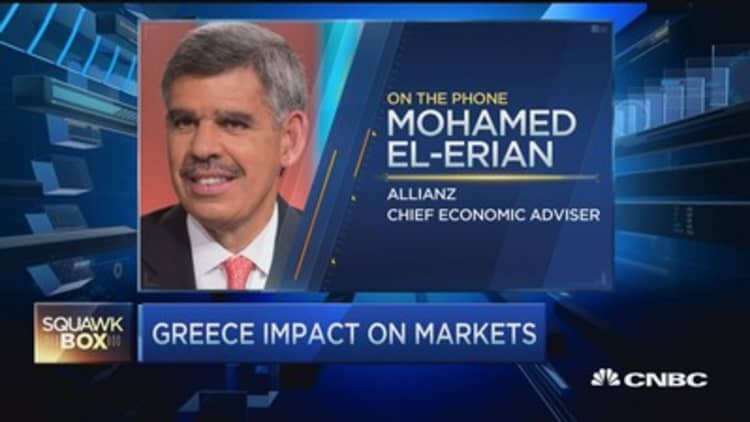
Despite the new rescue package, there's still a strong risk that Greece will eventually have to drop the euro, influential economist Mohamed El-Erian said Thursday.
"The baseline scenario is still that Greece ultimately exits the euro zone," he said.
But the short-term roadmap for the debt deal, which passed the Greek parliament early Thursday, should go relatively smoothly, the chief economic adviser at German financial giant Allianz said.
Case in point, the European Central Bank announced Thursday an increase in much-needed emergency lending to Greek banks, which have been closed for more than two weeks with capital controls on withdrawals.
Read MoreECB raises emergency funding to Greek banks
In the long run, however, it's going to get "really messy" for Greece, warned El-Erian, former co-CEO of Pimco. "Greece doesn't own the program. So implementation is going to get tricky. The financing is very challenging."
"It's not going to be easy to restart that economy," which continues to implode, he continued—adding it's going to be expensive to restructure and recapitalize the Greek banking system.
Against the backdrop of violent protests, the approval by Greek lawmakers of austerity measures demanded by creditors for a third bailout paves the way for $94 billion in financial aid, as the indebted nation struggles to make payments on the two previous bailouts.
Greece is already in arrears to the International Monetary Fund, which was highly critical of the latest deal ahead of the parliamentary vote. The IMF said Greece needs more debt relief than currently being considered.
"The IMF has been under enormous pressure to do things it shouldn't be doing, which is to lend into a situation where there wasn't debt sustainability," said El-Erian, who spent 15 years at the IMF. "They are pointing that out over and over again."
"At the end of the day, they will go along because of political pressure," he said.
Allianz was not immediately available to address CNBC's inquiry into whether it has any financial interest in Greek debt.


